Platform studies has gained momentum since Nick Montfort and Ian Bogost1 published their monograph on the Atari VCS in 2009. Presently there are seven books in the MIT Press series covering various digital platforms from older systems such as the BBC Micro2 to modern ones like Nintendo Wii.3 The series also focuses on computational systems, including the software platform Flash4 and the visual peripheral S-C 4020.5 Nathan Altice has broadened the scope of the platform studies framework, by arguing that playing cards can be understood as a platform.6 Broadening the platform studies framework to include analog games reveals a blind spot in the analytical frame—platform studies prioritizes the technical aspects of platforms over their cultural and social dynamics. This essay argues that better consideration of the cultural and social dynamics of platforms could strengthen the platform studies framework.
Magic: The Gathering7 (1993) shares many of the defining aspects of platforms as they were put forward by Montfort and Boost.8 Analyzing Magic provides new insight into the concept of platform, including its defining layers and the interactions between them. By refocusing the debate from game machines to games, I contest the rigid computational essentialism that privileges hardware and software over the cultural practices of player communities.
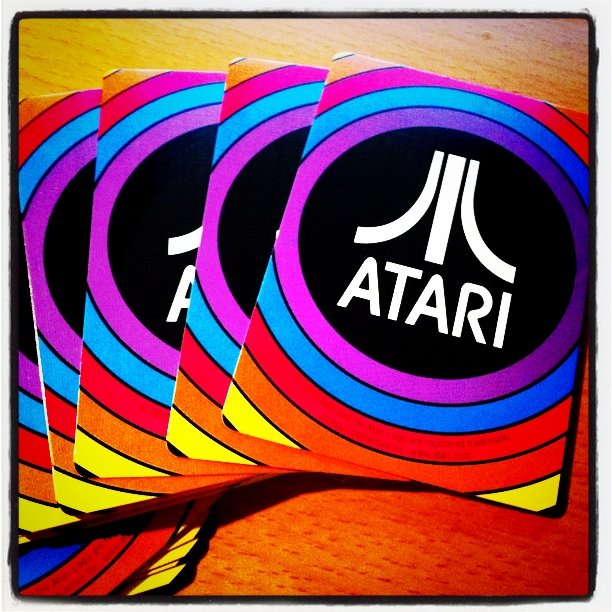
The Computational Essentialism of Platform Studies
The focus on computational systems in game studies creates an artificial disparity between digital and analog games. Not all analyses of platforms privilege the computational. For instance, Tarleton Gillespie argues that platforms are often the product of marketing strategies: “Platforms are platforms not necessarily because they allow code to be written or run, but because they afford an opportunity to communicate, interact or sell.”9 Analog games are a product of a similar set of affordances, as they facilitate communication, interaction, and commerce. Although Nathan Altice brings analog games into the conversation around platform studies, he fits them into the established computational framework. He explicitly compares the mechanic of tapping10 to an upgrade of processor power: “To borrow a computational term, playing cards had a processor upgrade from one bit—face up or face down—to two, and that additional bit widened the spectrum of design possibilities.”11 Where Gillespie shows how platforms are explicitly related to social processes, Altice borrows the language of Montfort and Bogost to rethink analog games.
Culture sits at the margins of the platform studies discourse. While Montfort and Bogost distinguish five different levels of new media (reception/operation, interface, form/function, code, and platform)12 these distinctions can be collapsed into the more inclusive categories of (1) hardware, (2) software and (3) culture. In fact, the authors of the framework themselves often reduce the overall technological structure into the two categories of hardware and software which then interact with users and developers.13 Although Montfort and Bogost occasionally try to stress the cultural dynamics of platforms,14 their original framework is most interested in technical architecture. Similarly, Altice argues that the material and technical aspects of platforms form the main organizing principle of the dimensions of the playing card platform despite the rather rich examples of the cultural surround of playing cards. This case of computational essentialism reduces the importance of the cultural layer to reception and operation. Built into the platforms of are analog games are rich community practices that have been forgotten in this conversation—communities do more than operate games; they modify, develop, and share them, too.
We can use Magic: The Gathering to show some of the limits of Montfort and Bogost’s argument. Following a typical platform studies approach we could claim that the hardware level in Magic: The Gathering15 is represented by the available card pool (nearly 16,000 cards) and the software part consists of rules, errata and various playable formats. However, when we move beyond these computational essentialisms and into the cultural level, we see rich interactions which cannot be neatly packed into three (or more) separate categories. These practices encompass the metagame(s) established through play, deckbuilding and discussions, the processes of convergence between community and official formats, fannish practices such as card modifications and alterations16 and the supposedly lucrative secondary markets of the game. Let us look at how the cultural dynamics of Magic problematize platform studies’ analytic of layers.
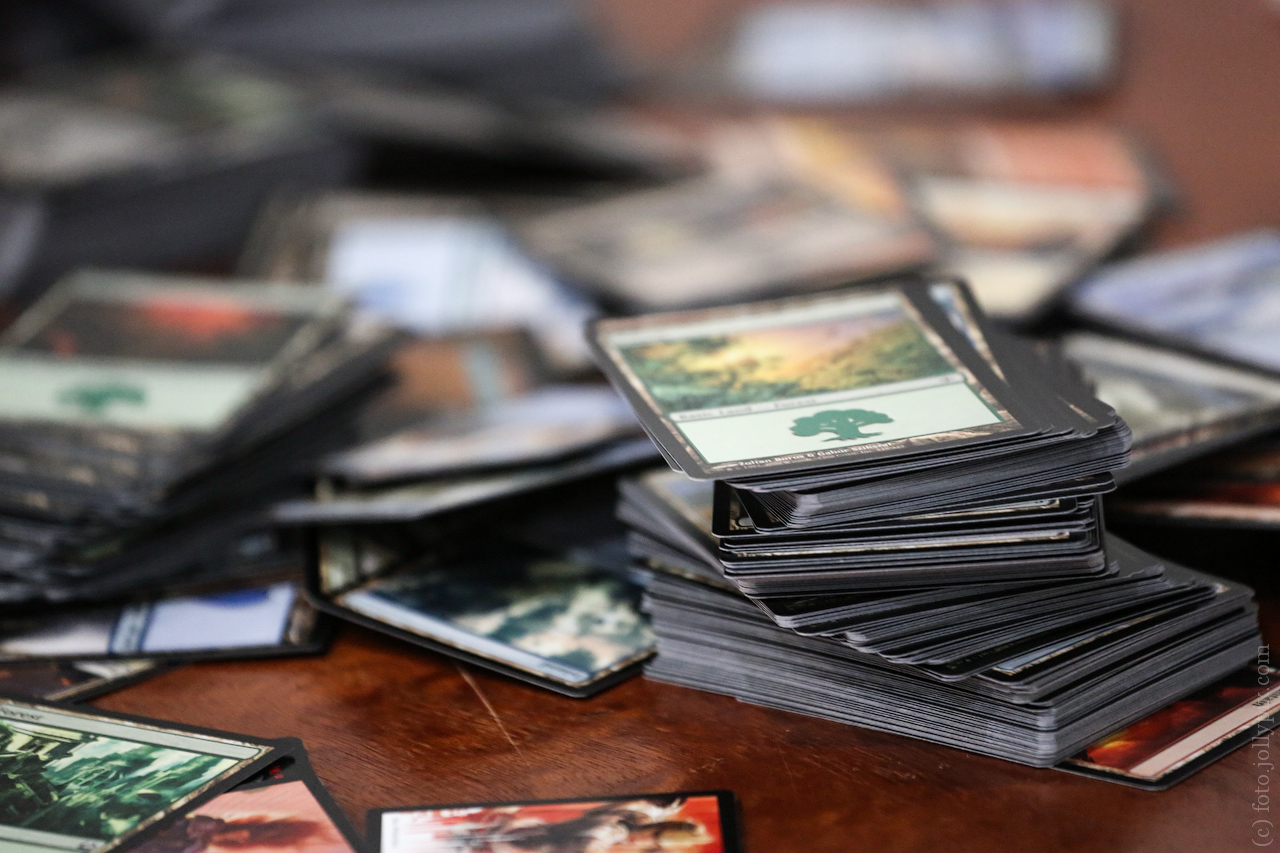
The Hardware Layer
Rectangular two-sided cards may seem simple in comparison to technical artifacts of video game consoles. Nevertheless, Altice17 shows the rich material dimensions of playing cards in general. Thus, playing cards are (1) planar – two sides allow for displaying and concealment of information, (2) uniform – identical size guarantees fairness of chance distributions, (3) ordinal – cards allow to be organized and stacked into decks, (4) spatial – card arrangements on a playing surface create meaning, as well as (5) textural – texture and surface allow for handling and shuffling.
Magic: The Gathering cards follow many of the conventions presented by Altice. Considering the planar dimension, they usually have only one relevant side while the other bears the uniform pattern. Given the material nature of the cards, however, there is a low level of meaningful (gameplay-wise) physical interactions in Magic: The Gathering, most of which are limited to the uniform, ordinal and textural dimensions.18
Despite this, we must consider the degree to which external processes impact the game platform. While ordinality plays a major role in the game itself, manufacturing processes play a large part in drafts and the game’s secondary market. The scarcity of cards is directly influenced by the practical constraints of the printing process and the distribution of cards among print sheets (which follow industry standards). These constraints impose outside limitations on the Magic: The Gathering collectible model. They are similar to the implications of a particular processor chip (or other hardware parts) for digital platforms. The connection between the manufacturing process and ordinality also allows players and resellers to predict the odds of particular cards being in booster packs (which have semi-randomized contents) based on their knowledge of the printing process and then establish the market prices.
The Software Layer
The software level is best understood from a historical perspective which shows the “multiple potential pathways, technological dead ends, lost histories, circuitous routes, and alternative conceptions,” of media history.19 In the case of Magic, this means new rules, errata and formats. Initially, the lead designer Richard Garfield conceived it as a trading card game where players would gamble for cards from their own decks.20 This rule was problematic for legal reasons – Magic: The Gathering was considered gambling in some parts of the US. Also, some players did not want to part with their most valuable cards after a lost duel. This rule was later abandoned when Magic: The Gathering moved from the trading card format to a more collectible one, but it still remains a historical evidence of design dead ends developers experimented with in the 1990s.
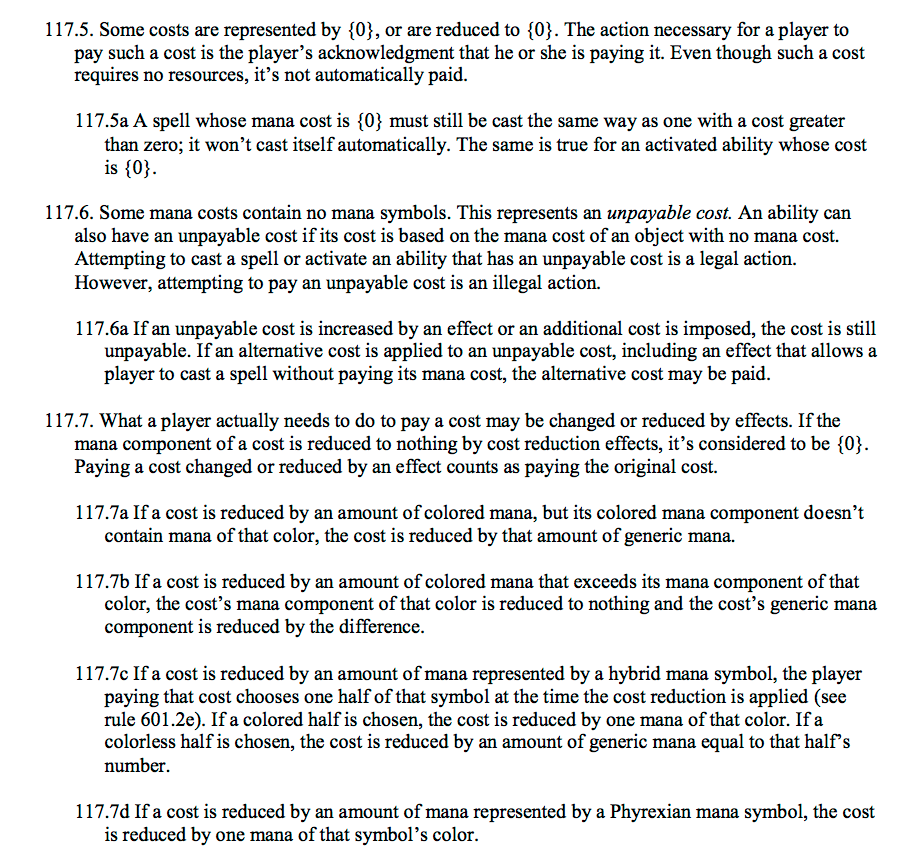
In the early history of the game, developers also tried to add more physical and spatial interactions into gameplay. For example, the card Chaos Orb could destroy anything it fell on: “Flip Chaos Orb onto the playing area from a height of at least one foot. Chaos Orb must turn completely over at least once or it is discarded with no effect. When Chaos Orb lands, any cards in play that it touches are destroyed, as is Chaos Orb.” Such interactions caused complications for the players regarding the layout of play area and they also introduced inequality between players at differing levels of motor ability. All physical and spatial cards are now banned from the official formats, but they still serve as an evidence of experimentation with the materiality of Magic. The current official rules have minimal spatial interactions barring some basic limitations on game zones. These developments show how the software level is greatly influenced by other elements of the platform and has over time focused on the most essential game mechanics and abandoned interactions that might dilute the main gameplay experience.21
While in the beginning Garfield was against the strict codification of rules, the increasing interest in the game and arising competitive scene22 made it a necessity. At that time, different formats in which you can play Magic, started to emerge. Usually formats differ by card pool limitations, for example Standard allows only cards from the most recent sets, while Vintage offers nearly the complete card pool of Magic. Along the way, players themselves started creating their own formats and even more actively influencing the life of the game. Wizards of the Coast, publishers of the game, have embraced some of these community formats by releasing cards made especially for such formats. The popular Commander format has been receiving yearly expansions since 2011 when the first official Commander pre-constructed decks were released. Many of these emergent formats address the more controversial aspects of the official and sanctioned Magic formats, for example the rather high barrier of entry for new players and the high level of competitiveness. The aforementioned Commander started as a casual multi-player format and introduced a few new rules23 including the new “commander legendary creature” rule or expanding the deck size from 60 cards to 100 cards. Overall, Magic can be played in many variations. These variations make it at least a very complex system of games—one which functionally resembles the interaction between the hardware and software layers of video game platforms.
The Culture Layer
Although Magic: The Gathering is highly commercialized, its players often engage in community building and other fannish activities. In an early ethnographic study on Magic: The Gathering, Patrick Kinkade and Michael Katovich have stated that it “belongs to a group of gaming cultures that rely on emergent rules, cooperative associations, and fantasy theme constructions.”24 Furthermore they argued that “the play is not necessarily the thing” pointing to the importance of participating in the overall culture of Magic: The Gathering. The communities around the game create a rich landscape of hobby practices. Some communities maintain unofficial formats through regular updates of rules and a banlist25 whenever new sets are released or when particular metagames converge around a small number of extremely efficient decks. For example, the official banlist for the Commander variant is under control of a committee independent from the publisher,26 but respected nonetheless. As mentioned before, the interactions between players and developers often follow the logic of cultural convergence27 with popular community formats receiving official expansions. Creation of such community formats and their consequent commercialization by publishers can also be seen as a manifestation of fan labor in which fans create value which is later capitalized on by the official producers.28 Despite the significant degree of commercialization caused by the collectible nature of the game, traces of fannish gift culture economies29 can still be found among player communities, including various forums and sites which offer deckbuilding advice for free or share alternative card art for the casual formats.
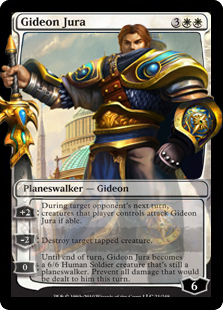
The usual conflicts between fan communities and copyright holders also emerge around Magic. Aaron Trammell30 has documented and analyzed the complicated and often confusing area of alter art31 which mirrors the vague legal regulation of transformative cultures32 more broadly. The popularity of the game presents many opportunities for fans, artists and players to make money out of their hobby. Furthermore, a large part of the Magic: The Gathering platform is directly influenced by card resellers due to their impact not only on individual card prices, but also on the prices of official pre-constructed decks which rarely follow the manufacturer’s suggested retail price (MSRP) but are instead sold at prices derived from the value of cards within. Wizards of the Coast is apparently aware of the status of Magic as a potential investment. They curate a list of cards which will never be reprinted in an effort to secure their future price for collectors.33
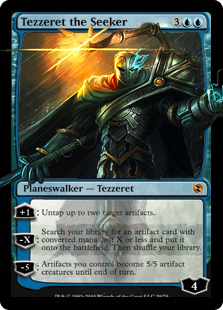
Another lucrative area enabled by Magic: The Gathering is the peripherals business which includes protective materials such as deck boxes, sleeves, play mats or card albums. The relatively high price for cards motivates players to protect their investment in the game by buying protection for their cards. These business practices are very similar to markets of video game platform peripherals including the distinction between unofficial, licensed and fan-made ancillary products.
Analog Games and Platform Studies
The structural logic of platform studies has both benefits and limits. In this essay, it has yielded an interesting and rigorous analysis of Magic. It has also enabled a legible comparison of analog and digital games. These analytics have their limits however, as the computational essentialism of platform studies has in many ways diminished the conversation around Magic and culture. The player and industry practices which comprise most of the game appear here isolated from the game’s more technical aspects.
New questions emerge: should platform studies (with its focus on the technological) be applied to new domains of of game studies? For me, the benefits of studying Magic as a platform outweigh the limitations. Above all, the platform framework is able to address the existence of multiple formats (both official and community-created) of Magic: The Gathering which would be very hard to account for if it was seen as a singular game or a part of a greater platform of playing cards. Also, the materiality emphasized by proponents of platform studies plays an important role in the collectible card game. However, the cultural aspects of the game are intrinsically tied to the other elements of the platform showing complex interactions that take place across the platform as a whole, such as the practices of alter art, secondary markets, metagame discussions or the processes of convergence between community formats and official card products.
It is important to expand the horizon of the platform studies framework and confront the rarely questioned fundamentals of game studies which often prioritize digital games and their computational layers without thorough comparison to their analog counterparts. Nonetheless, new strategies for dealing with the computational essentialism of platform studies are needed as we begin to extend the framework into the domain of analog games.
–
Featured image “Forgotten Magic” by Bernard Walker @Flickr CC BY-NC.
–
Jan Švelch is a Ph.D. candidate at the Institute of Communication Studies and Journalism at Charles University in Prague. He received his B.A. and M.A. in Journalism and Media Studies. His research focuses on video game paratexts, glitches, fan communities and fan cultures. His thesis will explore the reception of various paratexts to analog and digital games. Besides research, he works as a freelance journalist covering video games for various Czech magazines. He can be reached at honza <at> svelch.com and some of his texts can be found at his blog http://videogamedelver.blogspot.cz/.

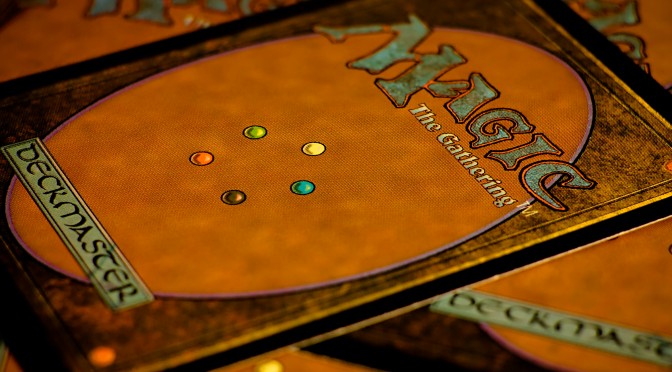
Amen, brother – testify! :) If you’re at DiGRA/FDG this year do check out my presentation “No-one Plays Alone” – and even if not, check out the paper. I’ve been saying for years now that the original multipurpose games platform was a deck of cards (although, actually, a case could be made for dice before this…). You and I are working in a very similar space with respect to this topic, and I’m always glad to know that I’m not alone when my research takes me down a tangent! :)
All the best,
Chris.
I will be at DiGRA/FDG this year and will try my best to catch your presentation. I believe there’s a potential in opening up the platform studies framework for analog games. And if you’re interested in more MTG-related stuff, I will be presenting a content analysis of gender representation in four sets of MTG there together with my colleague Tereza Krobová. See you in Dundee.
-Jan
I’m intrigued by the relationship of board games to platform studies and am happy to see some discussion here about their compatibility.
I suspect that Bogost and Montfort’s 2009 “Platform Studies: Frequently Questioned Answers” may be fairly relevant to this discussion though. For example, they acknowledge Gillespie’s broader framing of platform and explain why their more narrow focus on computation and computers is both reasonable and useful. They also explicitly clarify the role of culture in platform studies in the section “Misconception #5: Platform Studies is About Technical Details, not culture” with statements like “Platform studies is about the connection between technical specifics and culture.”
As the goal of platform studies is to look at a specific kind of phenomena, not to explain games in totality (see the section “Misconception #3: Platform Studies is All About Video Games”), I’m not sure it’s fair to argue that its computational priorities constitute a “blind spot”. However, there are some clear complications to considering analog games as a platform, so the considerations here are nice to see.
Hi Ian:
I feel that authors occasionally make claims that their research doesn’t adequately address. It might be a misconception that platform studies is not about culture, but in my opinion much of the work being done on it hasn’t provided a robust culturalist perspective that I (personally) would like to read.
To your second point, I would love to read more material on platform studies that doesn’t engage with specifically computational systems. It sounds like Bogost and Montfort would, too. I just haven’t seen too much of it. When more work like Svelch’s and Altice’s has been printed, I will be more confident in the political and empirical validity of misconception #3.
Aaron, you are right that Bogost and Montfort’s stated _aims_ say nothing about the _actual_ outcomes of the endeavor. I was wrong to state the later follows from the former.
To me, the question is not whether platform studies has a computational emphasis; the question is how far can someone actually get from that starting point? As you say, and I concede, the claims about cultural relevance may not shake out. But it seems to me that the scope of the outcomes is different from the validity of the subject matter. Maybe it’s ok that platform studies has the most to say about a specific kind of craft activity. Maybe my expectations are too low?